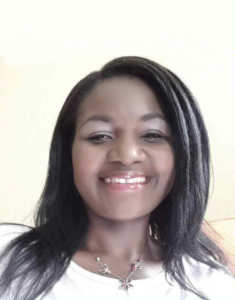 Dr. Pascalina Chanda-Kapata is a researcher and public health specialist with 18 years of public health experience and more than 50 scientific publications in peer reviewed journals. She has experience in malaria, tuberculosis, HIV/AIDS, infectious disease surveillance, M&E, research, capacity building and international development programming across Southern Africa. In her early career, Pascalina worked for the Zambian National Malaria Control Centre as Operations Research Officer where she was lead for the research aspects of the National Malaria Control Program. She was in charge of designing and undertaking research/surveys, training district and provincial staff, generating evidence for decision making in malaria control, providing quality assurance for the national demographic surveys and data quality assessments (DQAs) for the province and district levels. Later, she moved to the Ministry of Health Zambia Headquarters as Principal Surveillance and Research Officer where she headed the Research Unit at the national level.
Dr. Pascalina Chanda-Kapata is a researcher and public health specialist with 18 years of public health experience and more than 50 scientific publications in peer reviewed journals. She has experience in malaria, tuberculosis, HIV/AIDS, infectious disease surveillance, M&E, research, capacity building and international development programming across Southern Africa. In her early career, Pascalina worked for the Zambian National Malaria Control Centre as Operations Research Officer where she was lead for the research aspects of the National Malaria Control Program. She was in charge of designing and undertaking research/surveys, training district and provincial staff, generating evidence for decision making in malaria control, providing quality assurance for the national demographic surveys and data quality assessments (DQAs) for the province and district levels. Later, she moved to the Ministry of Health Zambia Headquarters as Principal Surveillance and Research Officer where she headed the Research Unit at the national level.
Pascalina led and managed multidisciplinary teams, developed the regulatory and institutional framework for health research in Zambia (eg: Legislation, planning and coordinating health research, strengthening the national health research ethics system, establishment of the National Health Research Authority, hosting bi-annual national research conferences, etc), strengthened disease surveillance for the Zambian Ministry of Health, providing quality assurance for national surveys (Demographic health surveys, malaria indicator surveys, drug resistance surveys, health facility assessments, etc) and training/mentoring of staff in operational research. She was mentor for the CDC Field Epidemiology Training Program and also mentored the Global Health Corps. Recently, (Jan 2017-Jan 2019) Pascalina worked at the regional level as a Senior Public Health Specialist, supporting member states in the East and Central Africa Health Community under the World Bank funded Southern Africa TB and Health System Support Project (SATBHSSP), providing technical support in Malawi, Lesotho, Mozambique and Zambia and providing quality assurance for the design and implementation of the phase 2 of the Global Fund TIMS Project for the SADC members states and providing quality assurance for the research component of the EAPHLN World Bank funded project in East Africa.
What led you to pursue a career in health
From the moment I interned at the National Malaria Control Program prior to my applying for a job there, I knew I had found my passion in public health and have not looked back since then. In my view, safe guarding health is second only to spiritual growth. A healthy person is unstoppable! In the health sector, we make decisions about people and in so doing decide who lives and dies (by extension). It is a great, yet humbling responsibility.
What are you most proud of?
I am very proud of the pool of staff I have been able to mentor or capacitate. I know that when the time comes to pass on the baton, the work will and must continue to even greater quality and extent. They continue to be change makers, decision makers, champions at the community, national and international level. Secondly, I am proud of the person I have become: I have interacted with experts at different levels and in various sectors at the national and international level; they have all been a source of knowledge, encouragement and a priceless network.
What do you wish you had done differently?
Sorry, I have no do overs. I am what I am because of all that happened. Of course lessons have been learned in the process.
What are some of the biggest challenges you have faced? How did you overcome them? What are some of the lessons learnt?
Access to adequate financing for health research has always been a challenge and continues to be so, including low utilisation of outcomes from research. It frustrates me that decisions may be made without consideration of the available evidence. Sometimes, this has led to waste of resources and in some aspects loss of life (avoidable deaths!). Being proactive in resource mobilisation and negotiating/advocating for improved resource allocation for health research. I have learned that being prudent with the few resources helps to attract more resources – you have to demonstrate the need, have capacity to manage resources and also show how it all fits in the bigger scheme of things: saving lives.
What are some of the opportunities you see for women in health on the African continent?
Gender mainstreaming at the national and international level has opened doors for women in health and other sectors as well.
What advice do you have for other women in health?
Find your niche, dream, and then go after your dream. Network, consult, learn and read. Make use of available opportunities to develop your skills and make yourself competitive. Take time to help those that come after you – be gracious. The world is your oyster!

Leave a Reply